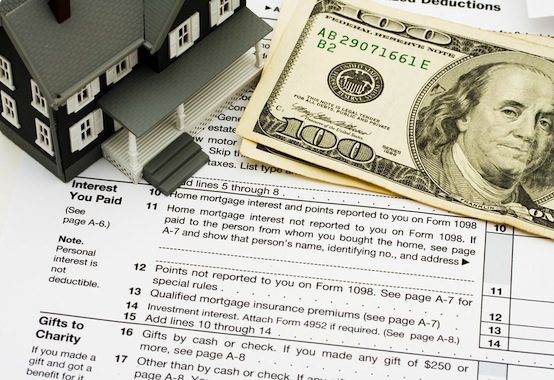Can GOP Thread the Needle With New Tax Reform?

Republican leaders on the Hill are rejoicing after their tax reform bill passed earlier this week, culminating with a triumphal White House press conference starring Donald Trump. But the legislation is worthy neither of the left’s high dudgeon comparing it to Armageddon and slavery nor the right’s jubilation over their sole legislative accomplishment of the year. The bill does not fulfill Republican promises to simplify the tax code, and violates nearly every major philosophical ideal that’s historically motivated tax reformers.
As passed by Congress, the GOP bill buys into the notion that the tax code should be used to delineate and separate the classes, with the rich owing far more than anyone else (both in actual raw totals and percentages of income). Far from simplifying the tax code, Republicans have expanded the number of income brackets, which solidifies the class warfare mentality already entrenched in the tax system.
At all levels, Republicans are promising that their plan will, in fact, save people money. House Speaker Paul Ryan admitted to CBS that taxpayers have “tons of confusion” about the bill, but added that when it’s passed and “people see their paychecks getting bigger in February because withholding tables have adjusted to reflect their tax cuts, when businesses are keeping more of what they earn, when they can write off their spending and hire more people, that’s going to change its popularity, I am convinced…the proof is in the pudding, and I think the results will speak for themselves.”
But rather than the simple code that was promised, this plan tinkers around the edges of current policy, creating winners and losers. Though the GOP is selling the bill as a tax break, it will still be extremely difficult for the average person to determine whether it actually saves them any money (another sign that it is not “simplifying” anything). The legislation repeals state and local tax (SALT) deductions that taxpayers in high-income, high-property tax areas were accustomed to taking advantage of, complicating the question of whether it will financially benefit a good number of people. No wonder 55 percent of Americans say they oppose the new law, according to a new CNN poll, and only 33 percent favor it.
There are quite a few problems with this politically, too. Even if the plan does save the average voter a few thousand dollars, how can Republicans offset a year’s worth of legislative inertia with difficult and convoluted tax policy? The bill lowers our corporate tax rate to 21 percent, which will help make the U.S. competitive globally. Yet while keeping American jobs in this country was something Donald Trump promised to do during his presidential campaign in order to make America great again, those two things are not necessarily synonymous. Many people see lowering the corporate tax rate as a shortcut to accelerated inequality and a quick way to make rich CEOs and shareholders richer. Republicans have yet to succeed in changing the public perception that this is a rehashed version of “trickle-down” economics.
Another challenge is the very real problem that the tax plan may not save people money at all over the long term. On average, taxpayers will see a tax cut of 8 percent in 2019, according to the Joint Committee on Taxation. But due to sunsetting provisions in the bill, by 2027, taxpayers earning up to $75,000 could see a tax increase. The GOP may be banking on hopes that a future Congress will make adjustments so that taxes don’t go up, but that will make the overall cost of this tax cut that much more more expensive.
Which brings us to another problem with the bill for fiscal conservatives: it isn’t paid for, and as a result the debt is set to rise by $1.5 trillion. Even though the boosted economy has resulted in increased tax revenue for the government, it still isn’t enough to pay for this year’s nearly $130 billion in increased spending. The government spends close to $7 million per minute, or $50,000 every second. We have nearly $161,000 of federal debt per taxpayer. Putting a tax cut on credit is foolhardy, especially given that this is how George W. Bush’s tax cuts were “paid” for, and the red ink only accumulated. The deficit is set to hit $1.5 trillion within a decade; adding an unpaid-for tax cut and massive amounts of new spending is the sort of thing that that only makes sense in the Washington swamp.
Under the best case scenario, the corporate tax cut will stimulate the economy the way Republicans hope, thereby boosting federal revenues and encouraging companies to invest here rather than hoard stockpiles of cash. U.S. companies were sitting on $1.9 trillion in 2016, and experts argue about why. One reason is that companies were loathe to invest the money they’re hoarding thanks to the high corporate tax rate. With the passage of this bill, we’re about to find out whether the lower rate will discourage hoarding and encourage investment and spur stagnant wage growth.
If it manages to do so, and people’s bank accounts are padded—whether directly through the tax cut or indirectly through a bolstered economy and increased wages—then Republicans will have threaded the needle and pulled off a political victory. Despite my skepticism over their political fortunes, that could still boost them considerably. After all, as Bill Clinton aide James Carville famously said, “it’s the economy, stupid.”
Barbara Boland is the former weekend editor of the Washington Examiner. Her work has been featured on Fox News, the Drudge Report, HotAir.com, RealClearDefense, RealClearPolitics, and elsewhere. She’s the author of Patton Uncovered, a book about General Patton in World War II, and is a summa cum laude graduate of Immaculata University. Follow her on Twitter @BBatDC.
Comments